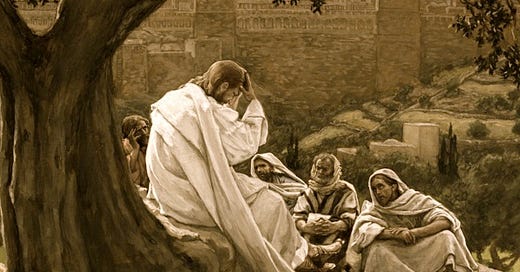Jerusalem was the city of peace, the centre of the world, and the pride of Israel. King David conquered it and transformed it into the capital of his kingdom (1 Chron 11:4-9). God chose it for His dwelling place (Ps 132:13-14). Every Jew loved to make a pilgrimage to the city, to see its magnificent beauty, and to pray and offer sacrifices in the temple.
In Psalm 122, we read: “I was glad when they said to me, “Let us go to the house of the LORD!” Then, upon their arrival to the city, the pilgrims declare: “Our feet have been standing within your gates, O Jerusalem!” They came there “to give thanks to the name of the LORD” (see Ps 122:1-4).
But, then this city, beloved both by God and his people, acquired in the course of history a bad reputation. Centuries before Christ, Prophet Isaiah proclaimed this shocking statement: “How the faithful city has become a whore, she who was full of justice! Righteousness lodged in her, but now murderers” (Is 1:21). Prophet Micah explained that the injustice of the city is rooted in its leadership. The leaders of the nation built “Zion with blood and Jerusalem with iniquity” (Mic 3:10).
In Jesus’ time, the Romans ruled over the city with the help of the religious elite, the high priests and the scribes. The temple was a source of wealth for the city and the ruling class. There was an annual tax required of every Jew and taxes on different agricultural products. In addition, as a pilgrimage site, the city earned a lot from the constant pilgrims who visited it. Herod Antipas, called “fox” in today’s Gospel, would love to be in charge of the city, but the Emperor of Rome was not willing to grant him that desire.
Like the prophets of old, Jesus laments over the city. Unable to discern the time of its visitation, the city was again heading for destruction. Jesus’ lament reveals God’s pain at being rejected. History was going to repeat itself. As the city was not willing to heed the call of the prophets to repentance, so it was also not willing to heed the call of God’s Son to repentance. The city that killed prophets and stoned to death those who were sent to her by God, was about to crucify the Son of God.
But, the Gospel ends with a hopeful note. The statement “Blessed is he who comes in the name of the Lord” comes from Ps 118:26. In this way, the priests welcomed pilgrims entering the temple. With these words, Jesus was welcomed by the crowds upon entering the city (see Mark 11:8-9). But, the Gospel looks forwards to the time, when the city and everyone will welcome Jesus as their Lord and Saviour.




